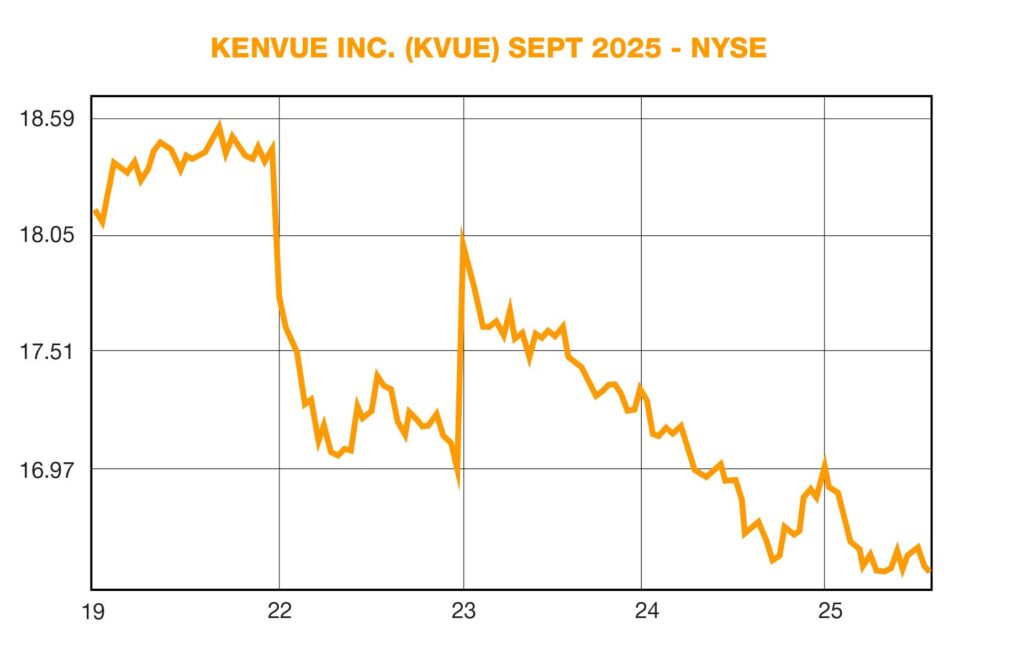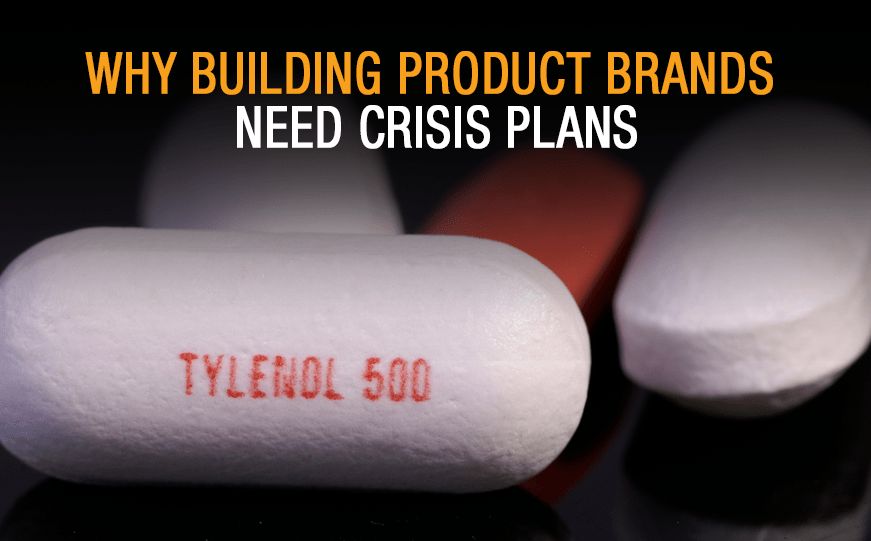While Kenvue says that Tylenol is safe, its stock hit a record low this week when claims were made on a potential link to autism.
From shifting tariffs to international trade disputes… the business environment is more unpredictable than it has been in decades. Global supply chains are in flux – costs can rise overnight – and ripple effects of political decisions can affect our construction channel.
At the same time, artificial intelligence is transforming the way brands are leveraging customer service chatbots and automated marketing campaigns.
Yes, powerful opportunities. With significant new risks.
TikTok has rolled out new e-commerce features… that can influence the success of a product launch. X (formerly Twitter) introduced paid verification, creating confusion over “authentic” versus “fake” accounts. While AI-generated videos and images are flooding feeds… the line is blurring between fact and fiction. A single post – true or not – can spiral into a viral storm. For building product manufacturers, the stakes have never been higher.
The moment a crisis hits, it’s already too late to start building a plan.

Building a Crisis Communication Plan
A crisis communication plan isn’t just a document tucked in a drawer. It’s a proactive strategy – that ensures an organization knows how to act – when every second counts.
Defining leadership roles. And identifying designated spokespersons.
Preventing mixed messaging with pre-drafted holding statements – that allow teams to respond quickly and consistently – especially when information is just developing.
Equally important is having internal communication protocols in place so that staff understand what they can and cannot say. Without this clarity, well-meaning and loyal members may inadvertently add to confusion.
Consider the construction supplier reliant on international components, that faces sudden price hikes. Or shipment delays. Without a communications plan… the brand risks losing customer trust before it has time to explain the facts.
Why Social Media Policies Matter More Than Ever
Social media can be the first – and loudest – arena where a crisis stems. For that reason, a social media policy is as important as a HR handbook or safety protocols.
An effective policy begins with defining who is authorized to post on behalf of the company… ensuring that a single “voice and tone” represents the brand. It should also lay out escalation protocols for handling negative comments – misinformation or trending controversies – so spokespersons know how to raise an issue to leadership.
Without a policy, teams risk reacting emotionally or inconsistently… that can worsen the situation.
Staying Ahead with Social Listening
Reputation management today isn’t just about responding.
It’s about anticipating.
Social listening tools allow companies to monitor brand mentions across platforms – tracking sentiment to identify shifts before they escalate – and benchmarking competitor activity.
Importantly, these tools can detect misinformation campaigns or coordinated negative activity… before they reach crisis points.
In an age when AI can generate false narratives at scale, social listening acts as a modern brand’s early warning system. While in-house teams can manage basic monitoring, partnering with a channel specialist agency can bring proactive monitoring – crisis simulations and seasoned communications professionals – who can see blind spots that internal teams may overlook.
Speed and clarity matter most. Brands need both… plus best practice experience.
A Real-World Example
Consider the situation that Innovative Stone – one of our clients – faced a few years ago. A major competitor (as we later discovered) had planted stories in the media that “granite countertops could cause cancer.”
News like this would understandably concern homeowners. As well as the surfaces channel.
And it threatened sales through the brand’s big box retailer, The Home Depot.
The situation required a quick response, so K&A stepped in to help quickly address and overcome the challenge. We got in front of the problem, proactively.
Our approach included recruiting scientific experts… while monitoring and engaging influencers in social media. Most importantly, developing as well as distributing content – that clearly stated, and substantiated – our client’s position: that naturally occurring radon from granite countertops was not a threat.
K&A’s PR strategy worked. And the brand’s sales remained steady… not missing a beat. You can learn the specifics of how we helped them by checking out our case study:

The Bottom Line
Today’s business environment is defined by volatility: tariffs, disputes, uncertainty, AI adoption… and a social media landscape that can change in an instant.
In this climate, reputation management is not optional.
Those Building Product Brands that thrive will be the ones that build and test crisis plans regularly – who develop and enforce strong social media policies – and leverage social listening to stay ahead of the narrative.
Is the light at the end-of-the tunnel an oncoming freight train? The question is whether your brand will be ready… if it is.




